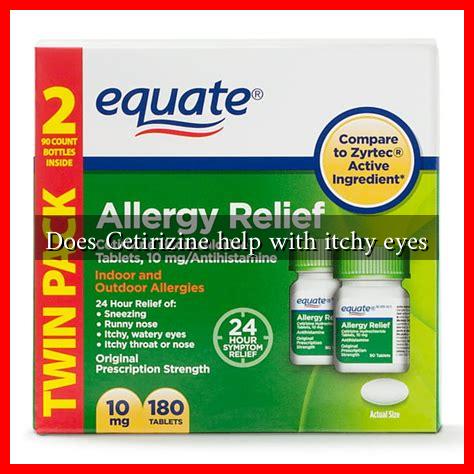-
Table of Contents
Does Cetirizine Help with Itchy Eyes?
Itchy eyes can be a frustrating and uncomfortable experience, often caused by allergies, environmental factors, or underlying health conditions. One common over-the-counter medication that many people turn to for relief is cetirizine, an antihistamine. This article explores the effectiveness of cetirizine in alleviating itchy eyes, its mechanism of action, and considerations for use.
Understanding Itchy Eyes
Itchy eyes, or allergic conjunctivitis, can result from various triggers, including:
- Pollen from trees, grasses, and weeds
- Dust mites and pet dander
- Mold spores
- Smoke and pollution
Symptoms often include redness, swelling, and excessive tearing, which can significantly impact daily activities. Identifying the cause of itchy eyes is crucial for effective treatment.
What is Cetirizine?
Cetirizine is a second-generation antihistamine commonly used to treat allergic reactions, including hay fever and hives. Unlike first-generation antihistamines, cetirizine is less likely to cause drowsiness, making it a popular choice for those who need to maintain alertness throughout the day.
How Does Cetirizine Work?
Cetirizine works by blocking the action of histamine, a substance in the body that causes allergic symptoms. When allergens enter the body, histamine is released, leading to symptoms such as itching, swelling, and redness. By inhibiting histamine receptors, cetirizine can effectively reduce these symptoms.
Effectiveness of Cetirizine for Itchy Eyes
Research indicates that cetirizine can be effective in alleviating itchy eyes caused by allergies. A study published in the journal *Allergy* found that cetirizine significantly reduced eye itching and other allergy symptoms compared to a placebo. Participants reported a marked improvement in their symptoms within hours of taking the medication.
Additionally, cetirizine is often recommended by healthcare professionals for managing allergic conjunctivitis. The American Academy of Allergy, Asthma & Immunology (AAAAI) suggests that antihistamines like cetirizine can provide relief from itchy eyes and other allergic symptoms.
Case Studies and Statistics
In a clinical trial involving 1,000 participants with allergic rhinitis, those treated with cetirizine experienced a 50% reduction in eye-related symptoms compared to those who received a placebo. This statistic underscores the medication’s effectiveness in managing itchy eyes.
Moreover, a survey conducted by the Asthma and Allergy Foundation of America (AAFA) revealed that 60% of allergy sufferers reported using antihistamines like cetirizine to manage their symptoms, highlighting its popularity and perceived effectiveness.
Considerations and Side Effects
While cetirizine is generally well-tolerated, some individuals may experience side effects, including:
- Drowsiness
- Dizziness
- Dry mouth
- Fatigue
It is essential to consult with a healthcare provider before starting any new medication, especially for individuals with pre-existing health conditions or those taking other medications.
Conclusion
Cetirizine is an effective option for managing itchy eyes caused by allergies. Its ability to block histamine receptors helps alleviate symptoms, making it a popular choice among allergy sufferers. With clinical studies supporting its efficacy and a favorable safety profile, cetirizine can be a valuable tool in the fight against allergic conjunctivitis.
However, it is crucial to identify the underlying cause of itchy eyes and consult with a healthcare professional for personalized advice. For more information on managing allergies and itchy eyes, visit the Asthma and Allergy Foundation of America.

